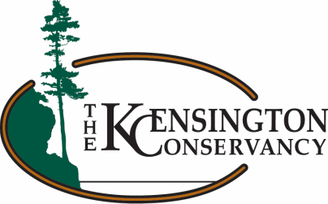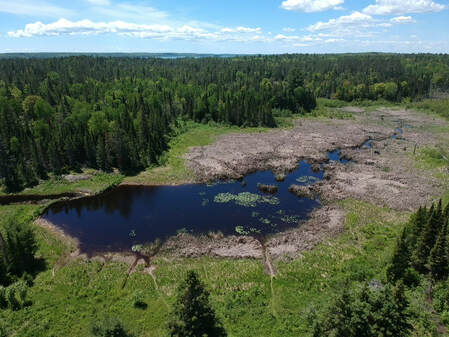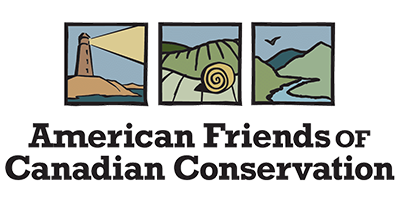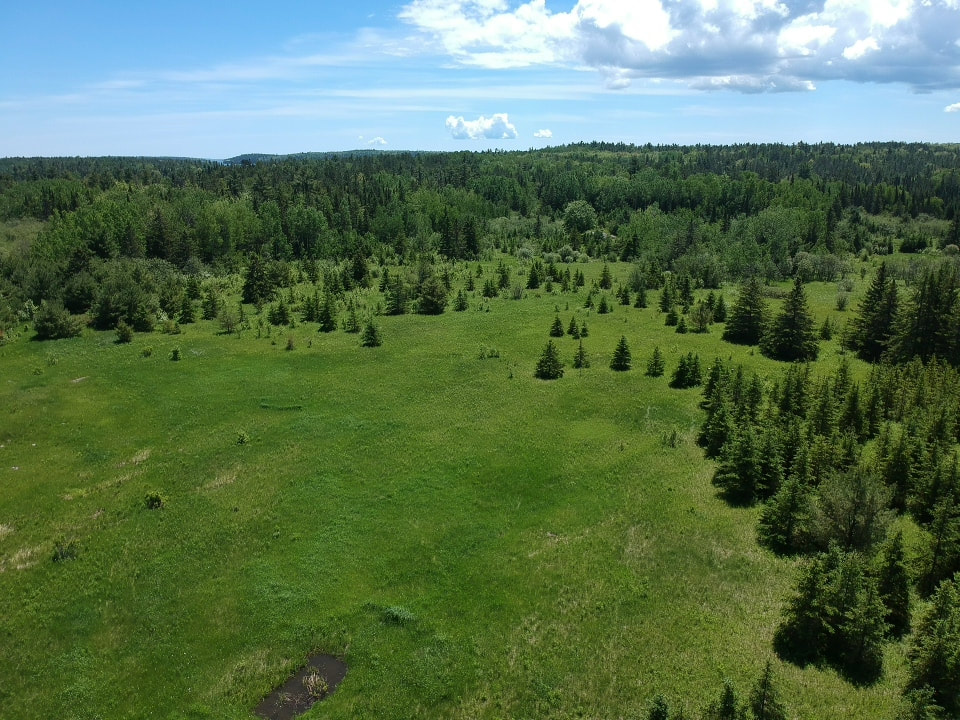Protection Options
Are you interested in having your property protected in perpetuity? Find out how you can do that through The Kensington Conservancy!
Why a Land Trust?Many land owners have protected their corners of the world for many years, maybe even generations, but still worry about the future. Land trusts are non-profit organizations that have the tools to assist landowners to protect their property into perpetuity. As each property has unique value to the owner, its preservation needs to be just as personalized and unique.
Protecting property does come with expenses though. Each property that we protect needs stewardship funds put aside to ensure we have the resources to steward the property in perpetuity. Depending on the transaction, there may also be a need for things like appraisals, surveys, and environmental assessments. If you are interested in protecting your property, we can discuss with you how these might be funded. Below are some of the various ways that you could work with us to protect your property in perpetuity. |
Land Donations
Donating land for conservation purposes may be the best conservation strategy for you if you do not wish to pass the land on to heirs, own property you no longer use, own highly appreciated property, have substantial real estate holdings and wish to reduce estate tax burdens, or would like to be relieved of the responsibility of managing and caring for land. Donating land releases you from the responsibility of managing the land and can, depending on the situation, provide both income tax deductions and estate tax benefits.
Donating a Remainder Interest in Land
An outright donation is not the only way to give land. You can continue to live on the land or use it by donating a remainder interest and retaining a reserved life estate. In this arrangement, you donate the property during your lifetime, but continue to live on and use the property. When you pass away (or sooner if you choose), the land trust gains full title and control over the property. By donating a remainder interest, you can continue to enjoy your property and you may be eligible for a charitable deduction at the time when the remainder interest is conveyed.
Donating Land by Will
If you want to own and control your land during your lifetime, but assure its protection after your death, you can donate it by will. Learn more on our Legacy Circle page.
Ecological Gifts Program
Environment Canada’s Ecological Gifts Program enables owners of property with sensitive natural features to preserve wildlife habitat. Donations of fee simple title and partial interests, including conservation easements, are eligible. And, in many scenarios the landowner can continue to hold title and/or live on the land.
Gift recipients include land trusts and other conservation charities, and government agencies chosen by donors and approved by the federal government. Donors of Ecological Gifts receive a donation receipt for the fair market value of the gift. Ecological Gifts tax advantages include:
For more information about Environment Canada’s Ecological Gifts Program, please visit their website here.
Gift recipients include land trusts and other conservation charities, and government agencies chosen by donors and approved by the federal government. Donors of Ecological Gifts receive a donation receipt for the fair market value of the gift. Ecological Gifts tax advantages include:
- eliminated taxable capital gain on the disposition of the property
- no income limit for calculating the tax credit/deduction
- donation value certified by the Government of Canada
- tax liability for donees that do not protect the gifted land
- Individuals or corporations can create a legacy and contribute to Canada’s rich biodiversity.
For more information about Environment Canada’s Ecological Gifts Program, please visit their website here.
American Friends of Canadian ConservationWorking as a US land trust that has adopted the Standards and Practices of both the Land Trust Alliance of the US and Canada, American Friends of Canadian Conservation accepts donations of qualified conservation lands and partial interests (conservation easements/covenants) in ecologically important land in Canada from US taxpayers. This process is required in order to obtain a US charitable tax receipt for your donation. American Friends’ transactions always involve a Canadian partner organization. The Kensington Conservancy is a Canadian Partner of American Friends of Canadian Conservation.
For more information about American Friends of Canadian Conservation, please visit their website here. |
Conservation Easement
A conservation easement is a voluntary legal agreement between a landowner and a land trust or government agency that permanently limits uses of the land in order to protect its conservation values. It allows you to continue to own and use your land and to sell it or pass it on to heirs. When you donate a conservation easement to a land trust, you give up some of the rights associated with the land. For example, you might give up the right to build additional structures, while retaining the right to grow crops. Future owners also will be bound by the easement’s terms. Conservation easements offer great flexibility. Most importantly, a conservation easement can be an essential tool for passing land on to the next generation while keeping it intact and limiting its future development potential.
Selling Land
Land trusts also have the ability to purchase properties. As a charitable organization, we may not always have the resources available to purchase every property we are interested in, but it is worth contacting us to learn more and see if there is a potential fit.
Split Receipting
If you sell a property to a land trust for less than the fair market value, you may be eligible to receive a tax receipt for the difference between the purchase price and fair market value. For example, if a property is valued at $100,000 but you sell it to a land trust for $60,000, a tax receipt for $40,000 may be able to be issued by the land trust to you.
Right of First Refusal
If you’d like a conservation minded buyer to have “first dibs” at buying your land, you can grant a land trust or government agency a right of first refusal. The conservation buyer would then be informed of any bona fide offer by another interested party to buy the property, and would have the right, generally within a short time period, to buy the property at the price offered by the other party.
Hire TKC as a Protection Consultant
If you are not interested in giving up ownership of your property or entering a conservation easement agreement, but would like to protect your property on your own, we are open to working with landowners to develop management plans and conduct stewardship activities on their own properties. This is a new service that we are offering, so please contact us if you are interested.
Are You Interested in Protecting Your Land?If one of the above land protection options may work for you and you would like to inquire further, please contact The Kensington Conservancy and we will be happy to help you:
Phone: 705-782-2200 Email: info@kensingtonconservancy.org The Kensington Conservation Centre: 69 Boyer Drive in Desbarats, ON |



